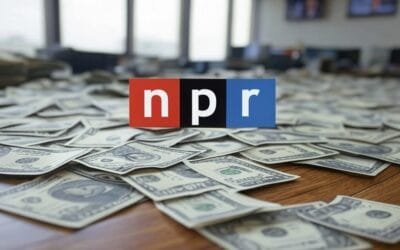About a year ago, the United States was in the middle of a primary election. The centerpiece of the campaign of one of the candidates on the Republican side was “election reform”. “Election reform” consists of restrictions on contributions of money to influence elections. It is based on the belief that the problem with the American system is that the rich can exert too much influence by contributing to political campaigns.1 Its essence is: “You can be heard by too many people; your ability to argue your point may have an influence beyond the proper. So, shut up.”
Despite its obvious violation of free speech rights, the press strongly supports it. The issue is alive nationally at all levels of Government. On the federal level, the McCain-Feingold bill appears likely to be enacted in some form. On the local level, the Los Angeles City Council adopted an emergency ordinance that required organizations supporting or opposing candidates in the upcoming election to disclose their efforts. The sole dissent was by a city councilman who “believed that it was wrong to change reporting requirements mid-campaign.”
Fear that speech may be successful is behind restrictions on advertising of tobacco products. The announced purpose of these regulations is to protect children from their influence. It is based on a premise that children are weak-minded and their parents powerless to controvert this advertising. The State of Massachusetts has enacted regulations which, inter alia, prohibit tobacco advertising within 1,000 feet of any school, park, or playground. In four cities, the prohibited zone covers over 87% of the land area. The Supreme Court has recently ruled these regulations unconstitutional.
Fear that advertising may be successful with children is not limited to the question of physical harm. The Federal Trade Commission is pressuring the recording industry to reduce its advertising of “violence” to children. In a recent report, a follow-up to a September study, the FTC “largely credited the movie and video game industries for their effort to stop targeting children as an audience for adult material.” But “The FTC found that all five major record labels still routinely advertised music with explicit content”—violent, lurid or obscene lyrics—on afternoon and early-evening shows popular with teens.” The FTC is concentrating on “two issues: whether adult-rated material was still being aimed at minors and whether entertainment company advertisements were clearly displaying the ratings.”
In response, the entertainment industry caved in. “We agree that we need to do a better job of following our own guidelines,” said Hilary Rosen, president of the Recording Industry Assn. of America. “The movie and video game producers previously caved in. In response to the September report, they virtually eliminated advertisements for R-rated movies in popular teen magazines.” And “the FTC also found ‘substantial compliance’ with Hollywood’s promise to keep trailers for R-rated films out of screenings of G- and PG-rated movies.”
Nor are laws limited to harmful activity. The city of Glendale, California recently tried to prevent a gas station owner from flying American flags. It was stopped by public pressure. The genie cannot be kept in the bottle.
Note:
- For the reason that this influence is worth so much money, see Ayn Rand, “The Pull Peddlers,” reprinted in The Voice of Reason 260.
Copyright © The Association for Objective Law. All rights reserved. Republished in Capitalism Magazine by permission of TAFOL.









